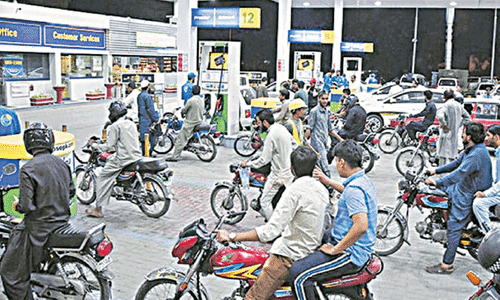IN JUST THREE days from today the nation is going to polls on October 10. A change is going to come about. It seems, however, that the major political parties perceive the resultant change more to be that of form than of substance.
Political and constitutional measures of the military government of General Pervez Musharraf have minimized the chances of some unsupervised development. This has led to the demoralization of political elements in the country. This is an impression one gathers after going through manifestos of key political parties (PPP, PML-N, PML-Q, MQM-A, MMA, ANP, etc).
It was little difficult to read through the manifestos of contending political parties without yawning. They reflect as much involvement and interest on the part of respective parties as is reflected in their election campaigns. “You cannot expect much enthusiasm from political parties when the whole exercise is planned in a way that forestall any possibility for them to make much difference”, commented an economist.
Moreover, in the absence of popular demand from the public for issues-based manifestos (again not because all their problems have been taken care of but may be because they also see the election exercise as an eyewash), political parties hardly feel much compulsion to take the issue seriously and treated it as another election formality. Many parties seem to have rehashed their old manifestos and that also in a hurry (ANP, etc,); the PML-Q seems to have adopted the last manifesto of PML-N; MMA’s manifesto is as generalized and vague as a future political road map could possibly be, avoiding most key questions confronting the country and the nation, leaving much to the will of God.Only the PPP and the PML-N have dealt with most issues at hand. Specially the PML-N has more clearly spelled ou the outlines of their policy towards the military for the first time.
The level of eagerness and spirits of political parties could also be gauged from the fact that the key parties released their most important pre-election document very late. In fact, the PML-N, the PPP and the MQM-A,all announced their manifestos last week only, when the elections are just round the corner__ so much for their commitment to their respective platforms. “Manifestos do not have much relevance in the current elections, any way”, says Dr Asad Saeed of Social Policy Development Centre. In his view this time round the government has set the rules of the game in such a fashion that there is very little space left for the parties to manoeuvre. “The whole environment of these elections is so designed that issues are pushed in the background and focus is on the winning candidates with near zero weightage to ideology of any sort”, he maintains.
As far as the economic content of manifestos presented by the parties is concerned, it again is much the same as before. Most, if not all parties, pledge in their manifestos to increase expenditure on social sector including education and health many folds (See table for details).Where are they going to find additional resources to divert to these sectors is left to people’s imagination. There seems to be some sort of broad consensus amongst key political players over denationalization, deregulation, right-sizing, transparency, enhanced role of the private sector and better governance. The language is different with near similar meanings.
The PPP and the PML-N both promise to readjust manpower displaced on account of right-sizing in gainful employment elsewhere. The million dollar question is: How are they going to create employment for displaced manpower when the status of economic activity is at a level where even fresh entrants in the labour market fail to get absorbed? Again no realistic and convincing solution is suggested in these ambitious plans. The MQM-A is the only party that has categorically spelled out its intention to carry out land reforms if voted to power.
In view of a political analyst the scope of the next government to make independent economic policy choices is at best limited. The country is in the middle of an IMF programme, that cannot be abandoned half way. The Poverty Reduction and Growth Facility (PRGF) agreement imposes very precise limitations. After debt servicing and huge defence expenditure, there is very little fiscal space left to play with.
The stabilization policies being pursued by the government over the last three years might have earned economic managers admiration of international financial institutions and applause from overseas supporters. They did not prove to be very popular with the masses. Some abstract numbers cannot be expected to pacify the bitter unemployed people or help millions struggling for bare survival. It is also difficult to make ordinary Pakistani understand that they need to exercise patience and wait for the benefits to trickle down if and when growth rate figures move in above 5 per cent bracket.
Statistics gathered by economists of Social Policy Development Centre reveal that the set of policies opted for and pursued have contributed to the worsening of the socio-economic indicators. GDP growth rate has been under three per cent over the last three years. The rate of increase in unemployment is depressingly low. The level of investment has been lowest since 1966.
Some business leaders contacted by Dawn favour continuation of current trend of the economic policies that in their view has led to better fiscal management. An economist of SPDC, however, feels that there is need to change the very thrust of these policies. “Continuity of stabilization programme is going to spell disaster for Pakistan”, maintains Dr. Saeed.














































Dear visitor, the comments section is undergoing an overhaul and will return soon.